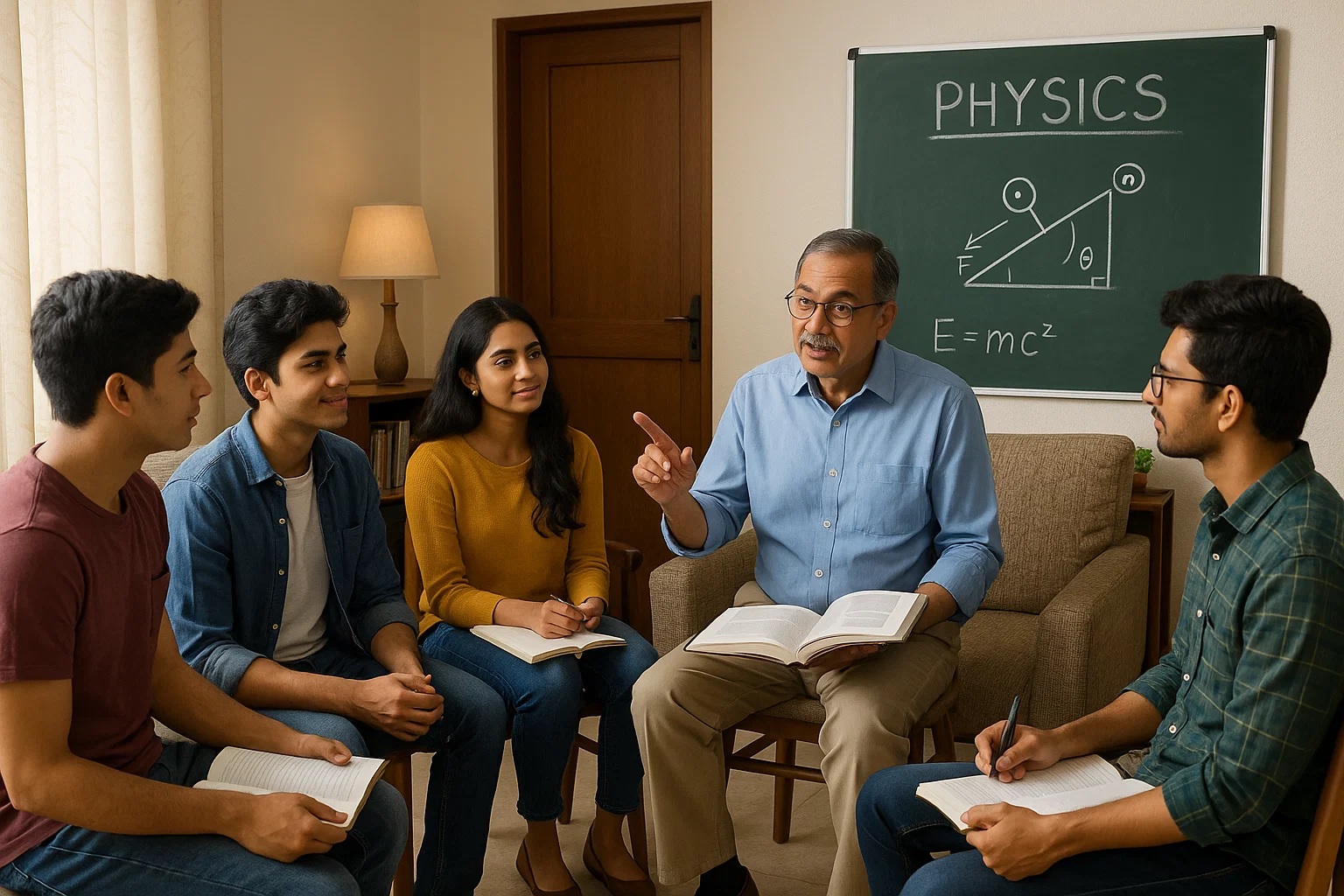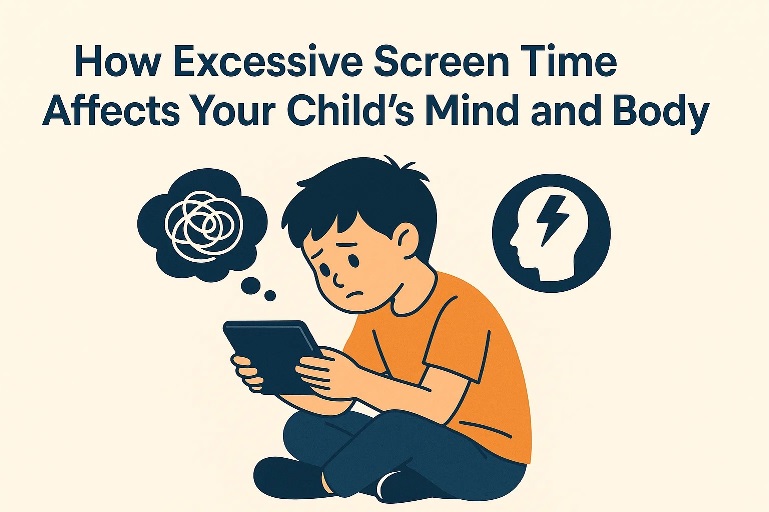As parents, we all want our children to learn, explore, and enjoy the benefits of technology. Mobile phones, tablets, laptops, and televisions have become part of everyday life, especially for children. While these devices offer opportunities for education and entertainment, too much screen time can have serious effects on a child’s mental and physical well-being.
Recent studies show that Indian children are spending more time on screens than ever before. According to a 2024 report by the Indian Council of Medical Research, children aged 5 to 15 spend an average of 4 to 6 hours a day on devices, and this number can be even higher for teenagers. The World Health Organization recommends that children aged 5 to 17 should have no more than 2 hours of recreational screen time daily, which means many children are exceeding healthy limits.
One of the first areas affected by excessive screen time is attention span. Constant exposure to fast-moving images, quick cuts, and notifications can make it difficult for children to focus on slower-paced activities such as reading, homework, or even conversations. Teachers often report that children who spend a lot of time on screens find it harder to concentrate in class and are more easily distracted.
Mental health is another concern. Studies from the American Academy of Pediatrics have found a link between heavy screen use and increased rates of anxiety, irritability, and sleep problems in children. Binge-watching shows late into the night or playing games until bedtime can disrupt sleep cycles, leading to fatigue, poor academic performance, and mood swings.
Physically, prolonged screen time often leads to a sedentary lifestyle. This lack of physical activity can contribute to weight gain, poor posture, and weakened muscles. Eye strain, commonly called digital eye strain or computer vision syndrome, is becoming increasingly common in children. Symptoms include dry eyes, headaches, and blurred vision. The Indian Journal of Ophthalmology reported in 2023 that cases of myopia (nearsightedness) in school-aged children have risen sharply, partly due to increased screen use.
Excessive gaming or social media use can also impact social skills. While online platforms allow children to connect with friends, face-to-face communication skills can suffer. Children may become less comfortable with real-life interactions, leading to feelings of isolation.
Of course, not all screen time is bad. Educational apps, online classes, and supervised learning activities can be beneficial when balanced with offline activities. The key is to set healthy boundaries. Parents can encourage regular breaks, involve children in outdoor activities, and create device-free times, especially during meals and before bedtime.
For example, a family I know replaced their evening television time with a 30-minute walk followed by a storytelling session. Within a month, they noticed their child was sleeping better, showing more interest in studies, and even participating more actively in sports at school.
Technology is here to stay, but it is our responsibility to guide children towards using it wisely. By monitoring screen time and encouraging a balanced lifestyle, we can help ensure that our children benefit from technology without letting it harm their mind or body.
At IndiaTutor.in, we believe in promoting healthy learning habits that go beyond screens. After all, education should shape a child’s future, not strain it.
By Nidhi Mehta – Founder – IndiaTutor.in

